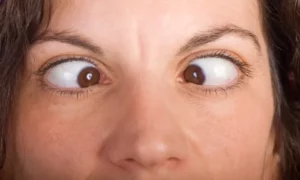In this blog, we’ll explore essential precautions to ensure a smooth recovery after squint surgery. You’ve taken the important step to correct your squint, and now it’s vital to understand how to safeguard your eyes and maintain proper care. We’ll guide you through the do’s and don’ts, covering everything from immediate post-surgery measures to long-term eye health. By the end of this blog, you’ll have a clear understanding of the precautions needed to prevent complications and enjoy the best possible results from your squint surgery. So, let’s get started on your journey to a healthier and happier vision!
Contents
- 1 Vital Precautions After Squint Surgery
- 2 Prioritizing Eye Hygiene and Protection Post-Squint Surgery
- 3 Steer Clear of Eye Rubbing for a Smooth Squint Surgery Recovery
- 4 Nurturing Your Recovery: Diet and Lifestyle After Squint Surgery
- 5 Guarding Against Infection: Post-Surgery Eye Care Tips
- 6 Exercises and Activities After Squint Surgery
- 7 Conclusion
Vital Precautions After Squint Surgery
After your squint surgery, it’s crucial to follow specific precautions to safeguard your vision and promote a smooth recovery:
- Protective Glasses: Shield your eyes from dust and debris by wearing protective glasses when in environments that may expose your eyes to foreign particles.
- No Eye Rubbing: Avoid the temptation to rub your eyes for at least the first 10 days after surgery. This simple measure can prevent complications and help your eyes heal properly.
- Avoid Water Contact: For the first 10 days following surgery, take baths without letting water into your eyes and be cautious when washing your face.
- Moderate Exercise: While you don’t need to be entirely sedentary, opt for light exercises like walking instead of strenuous physical activities.
By adhering to these precautions, you’ll contribute to a successful and complication-free recovery journey after squint surgery, ensuring the best possible results for your vision.
Prioritizing Eye Hygiene and Protection Post-Squint Surgery
After squint surgery, maintaining proper eye hygiene and protection is paramount. Here’s how you can safeguard your eyes and enhance your recovery:
- Eye Drops: Follow your doctor’s instructions regarding the use of prescribed eye drops to prevent infection and promote healing.
- Eye Patch: Depending on your surgeon’s advice, you may be required to wear an eye patch. This helps shield your eye and contributes to a more comfortable recovery.
- Avoid Smoke and Dust: Steer clear of smoky or dusty environments that may irritate your eyes. Wearing protective glasses can help in these situations.
- Regular Follow-ups: Attend your scheduled follow-up appointments with your eye specialist to ensure that your recovery is progressing as expected and to address any concerns promptly.
- Cleanse Carefully: When washing your face, take care to avoid water splashing into your eyes during the initial recovery period.
By making these precautions a part of your post-squint surgery routine, you’ll help ensure a safe and effective recovery while maintaining optimal eye health.
Steer Clear of Eye Rubbing for a Smooth Squint Surgery Recovery
Rubbing your eyes can be an instinctual response to irritation or fatigue. However, it’s crucial to understand why avoiding eye rubbing is vital for a successful squint surgery recovery:
- Infection Risk: When you rub your eyes with your fingers, you introduce a potential source of infection. Your hands may carry germs, and any contact with your post-surgery eyes can lead to complications.
- Inflammation: Rubbing your eyes can cause unnecessary inflammation, which can hinder the healing process and may result in discomfort and pain.
- Cornea Pressure: The cornea, which plays a significant role in vision, is delicate. Rubbing your eyes can exert pressure on the cornea, potentially affecting its shape or causing damage.
- Suture Stability: Squint surgery typically involves delicate sutures. Rubbing your eyes can put stress on these sutures and, in some cases, even lead to their displacement.
- Impact on Healing: The healing process post-surgery is crucial for the success of squint surgery. Eye rubbing can disrupt the healing and alignment of your eye muscles, affecting the desired outcomes of the procedure.
To ensure a smooth recovery, it’s essential to resist the urge to rub your eyes. If you experience discomfort or itching, consult your eye specialist for appropriate remedies rather than resorting to eye rubbing.
Nurturing Your Recovery: Diet and Lifestyle After Squint Surgery
Hydrate Well: Staying well-hydrated aids in the healing process. Ensure you drink plenty of water, but avoid excessive caffeine or alcohol consumption, as they can lead to dehydration.
Balanced Diet: Consume a balanced diet rich in fruits, vegetables, and protein. These nutrients are essential for your body’s healing mechanisms.
Rest and Sleep: Adequate rest and sleep are crucial for recovery. Allow your body to recuperate and repair itself during the healing process.
Avoid Stress: High stress levels can impact your recovery. Practice relaxation techniques, such as deep breathing or meditation, to reduce stress.
Light Exercise: Engage in light exercises, such as walking, once your doctor gives the green light. Exercise can improve blood circulation and overall well-being.
By adhering to a healthy diet and lifestyle, you can contribute to a smooth recovery and enhance the results of your squint surgery. Remember to follow your doctor’s recommendations and attend scheduled follow-up appointments to monitor your progress.
Guarding Against Infection: Post-Surgery Eye Care Tips
After your squint surgery, preventing infection is a top priority. Proper eye care can make all the difference in your recovery. Here are some key tips to ensure your eyes remain infection-free:
- Hand Hygiene: Before touching your eyes or applying eye drops, make sure your hands are clean. Frequent handwashing with soap and water can help prevent the introduction of harmful bacteria.
- Medication Adherence: If your doctor prescribes any eye drops or medications, follow the prescribed dosage and schedule diligently. These medications play a crucial role in preventing infection and promoting healing.
- Avoid Swimming: Refrain from swimming in pools, hot tubs, or natural bodies of water during the initial phase of your recovery. Water can introduce harmful microorganisms to your eyes.
- Avoid Crowded or Dusty Areas: Steer clear of crowded places or environments with excessive dust or pollution. These conditions increase the risk of foreign particles entering your eyes.
- Limit Screen Time: Reducing screen time, especially in the first few days after surgery, can minimize eye strain and discomfort. If you must use screens, take regular breaks to rest your eyes.
By following these eye care tips, you can minimize the risk of infection and promote a successful recovery after your squint surgery. Always consult with your eye specialist if you have any concerns or notice any unusual symptoms.
Exercises and Activities After Squint Surgery
 After squint surgery, you may wonder when it’s safe to resume regular activities and exercise. While it’s essential to allow your eyes to heal properly, there are exercises and activities you can safely engage in. Here’s what you need to know:
After squint surgery, you may wonder when it’s safe to resume regular activities and exercise. While it’s essential to allow your eyes to heal properly, there are exercises and activities you can safely engage in. Here’s what you need to know:
Early Post-Surgery Period (First Few Weeks):
- Walking: Light walking is generally safe, and it can help improve blood circulation without putting undue stress on your eyes.
- Breathing Exercises: Relaxation and deep-breathing exercises can be beneficial. These techniques reduce stress and promote overall well-being.
Mid-Post-Surgery Period (A Few Weeks to a Few Months):
- Yoga: Gentle yoga, with an emphasis on relaxation and meditation, can be a good choice. Avoid poses that require you to bend forward or put your head below your heart.
- Aerobic Exercise: Low-impact aerobic exercises like stationary cycling or swimming may be suitable. Always consult your eye specialist before starting these activities.
- Resistance Training: If you’re accustomed to weightlifting, you can gradually reintroduce light weights. However, avoid exercises that require heavy lifting or excessive straining.
Late Post-Surgery Period (Several Months After Surgery):
- Cardio Workouts: You can gradually transition into more strenuous cardio workouts, like running or jogging, with your specialist’s approval.
- Sports and High-Intensity Activities: Consult with your eye specialist to determine when it’s safe to resume sports or high-intensity activities. It’s crucial to protect your eyes from direct impacts or trauma during such activities.
Precautions for All Stages
- Avoid Strain: At every stage of your recovery, avoid straining or overexerting your eyes. If you experience discomfort, pain, or any unusual visual changes during exercise, stop immediately and consult your eye specialist.
- Stay Hydrated: Proper hydration is essential for eye health. Drinking enough water helps maintain eye moisture and prevents dryness.
- Use Protective Gear: If you’re engaging in activities that pose a risk to your eyes, such as sports, wear protective eyewear or goggles.
- Regular Follow-Up: Continue attending your scheduled follow-up appointments with your eye specialist. They will assess your progress and provide guidance on when it’s safe to increase physical activity.
Remember that everyone’s healing process is unique. It’s vital to follow your specialist’s advice regarding the resumption of exercises and activities. By doing so, you can ensure a smooth recovery and reduce the risk of complications after squint surgery.
Conclusion
In conclusion, the journey to recovery after squint surgery is a crucial phase in your path to clearer and healthier vision. By following the precautions, maintaining eye hygiene, protecting your eyes from environmental factors, and engaging in safe exercises, you play a significant role in ensuring a smooth and successful recovery.
If you or someone you know is dealing with squint-related issues and yearning for the freedom of clear, aligned vision, we’re here to help. At EyeMantra, our dedicated team of specialists, led by Dr. Shweta Jain, is committed to providing the highest level of care and expertise in squint surgery. Book your free appointment now by calling 9711116605, and take the first step towards a brighter, squint-free future. Your journey to better vision begins here.



